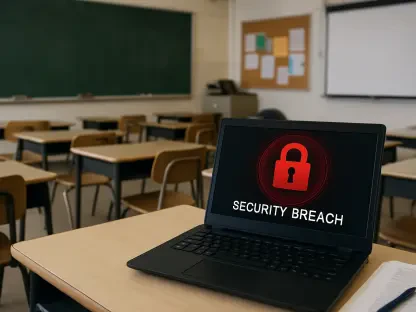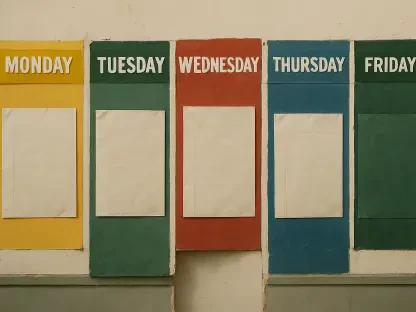Imagine a college student, buried under the weight of exams and deadlines, receiving a simple text message that offers a quick tip to manage stress or points to a campus resource they hadn’t known about before. Such small, timely interventions can have a profound impact on mental well-being, especially for young adults navigating the challenges of higher education. At Baylor University, a groundbreaking initiative called HealthyBearsTXT is harnessing the power of text messaging to support students in a unique and accessible way. This program isn’t just about sending reminders—it’s about building a culture of care by delivering relatable, research-backed messages that encourage self-care and connection. By meeting students where they are, on their phones, this approach is redefining how mental health support can be integrated into daily life. As mental health remains a critical issue on campuses nationwide, exploring innovative tools like text messaging offers hope for scalable, effective solutions.
Addressing a Growing Campus Concern
Mental health challenges have become a significant obstacle for college students, often hindering their ability to succeed academically and persist through their studies. Surveys conducted in recent years paint a stark picture, showing that over half of enrolled students grapple with intense emotional stress, with a large portion identifying mental health as a primary barrier to staying in school. The pressure to balance academics, social life, and personal growth can be overwhelming, leaving many feeling isolated or unsure of where to turn. This pervasive issue demands innovative interventions that can reach students in meaningful ways, beyond traditional methods that may feel inaccessible or stigmatized. Programs that leverage familiar technology, like text messaging, are emerging as a promising avenue to deliver support directly to those in need, ensuring that help is just a notification away.
The urgency to address this crisis is compounded by the fact that mental health struggles often go unaddressed until they escalate into more severe issues. Many students lack the tools or awareness to manage stress, anxiety, or other concerns early on, which can lead to burnout or withdrawal from academic pursuits. Campus administrators and health professionals are increasingly recognizing the need for proactive measures that prevent crises before they occur, rather than merely reacting to them. By integrating digital tools into wellness strategies, universities can create a safety net that supports students continuously, not just during moments of acute distress. Text-based initiatives offer a way to provide consistent, bite-sized encouragement and information, helping to normalize conversations about mental health and reduce the barriers to seeking help.
Overcoming Barriers to Campus Resources
A significant challenge in supporting student mental health lies in the gap between the availability of campus resources and students’ awareness or willingness to use them. Despite the presence of counseling centers and health clinics at most universities, a surprising number of students remain uninformed about these services, with many never stepping through their doors. This disconnect often stems from stigma, lack of time, or simply not knowing where to start. HealthyBearsTXT at Baylor University addresses this issue head-on by using text messaging as a direct channel to inform students about available support systems. By delivering concise messages that highlight specific resources, the program reduces the friction involved in seeking help and makes wellness a part of everyday conversation.
Furthermore, the familiarity of text messaging as a communication medium plays a crucial role in breaking down barriers. Students are already accustomed to receiving and responding to texts, making this approach feel less intrusive than other forms of outreach. HealthyBearsTXT capitalizes on this by sending targeted reminders about mental health workshops, clinic hours, or even simple self-care tips that can be acted upon immediately. This method not only increases visibility of campus services but also fosters a sense of trust and accessibility. Over time, these small interactions can encourage students to take the first step toward utilizing resources, whether that means booking a counseling session or attending a wellness event. The potential to bridge this awareness gap through a medium as ubiquitous as texting highlights a scalable solution for universities everywhere.
The Power of Digital Nudges
Text messaging stands out as an exceptionally effective tool for reaching young adults, particularly college students who are rarely without their smartphones. Research indicates that this demographic is highly likely to read incoming texts, even if the content doesn’t fully resonate with them at the moment. Programs like HealthyBearsTXT leverage this behavior by crafting short, impactful messages that serve as gentle nudges toward positive actions, such as taking a break to relax or reaching out to a friend. Amid the barrage of daily notifications students receive, these wellness-focused texts cut through the clutter by offering practical, uplifting content that aligns with their immediate needs and routines.
Beyond mere visibility, the strength of text messaging lies in its ability to influence behavior subtly over time. Unlike more formal interventions, which might feel daunting or out of reach, a quick text can prompt small, manageable changes that accumulate into significant improvements in well-being. For instance, a reminder to prioritize sleep before a big exam can help a student avoid burnout, while a message about a peer support group might inspire connection during a lonely period. HealthyBearsTXT ensures these prompts are timely and relevant, often tying them to the academic calendar or seasonal stressors. This strategic use of digital communication demonstrates how technology can be harnessed to support mental health in a way that feels natural and integrated into students’ daily lives.
Crafting Messages That Resonate
The success of HealthyBearsTXT hinges on its collaborative and customized approach to message creation, ensuring that content feels authentic and relatable to students. Faculty, staff, and students at Baylor University work together to develop texts that avoid a top-down, lecturing tone, instead adopting a peer-to-peer voice that resonates more deeply. Covering a range of topics such as sleep habits, managing anxiety, and building healthy relationships, these messages are carefully designed to address the multifaceted challenges students face. By tailoring content to align with the academic calendar—think stress management tips during finals or flu shot reminders in the fall—the program ensures its relevance to the specific moments when students need support most.
Equally important is the emphasis on making each message actionable and grounded in evidence. The involvement of campus experts from diverse fields ensures that the advice shared is not only practical but also backed by research, lending credibility to the initiative. Meanwhile, student input guarantees that the language and framing feel approachable, as if coming from a trusted friend rather than an authority figure. This balance between expertise and relatability is key to engaging recipients and encouraging them to act on the suggestions provided. As HealthyBearsTXT demonstrates, the process of crafting messages is just as critical as the delivery method, highlighting the importance of community collaboration in creating impactful mental health interventions.
Measuring Engagement and Impact
Since its rollout, HealthyBearsTXT has connected with nearly 1,000 campus members through weekly messages, showing promising signs of engagement that underscore its potential. Far from being ignored, these texts are eliciting positive responses, with students sending appreciative replies or reacting with emojis to express their approval. This level of interaction indicates that the messages are not only being read but are also striking an emotional chord, fostering a sense of connection and anticipation for future texts. Such feedback provides early evidence that a simple, low-cost intervention like text messaging can have a meaningful impact on how students perceive and prioritize their mental well-being.
Looking deeper, the engagement with HealthyBearsTXT suggests a shift in how students interact with wellness initiatives. Unlike more traditional programs that might require active participation or in-person attendance, this digital approach meets students in a space they already inhabit, making participation effortless. Anecdotal reports from campus leaders note a growing buzz around the messages, with some students even sharing them with peers or discussing the tips in casual conversations. This organic spread of content hints at a ripple effect, where individual engagement can influence broader campus attitudes toward mental health. As the program continues to gather data on its reach and effectiveness, these early indicators point to a model that other institutions might replicate with similar success.
Shaping a Future of Proactive Wellness
Reflecting on the journey of HealthyBearsTXT, it’s evident that this initiative marks a significant step forward in addressing student mental health through innovative means. By delivering targeted, relatable messages directly to students’ phones, the program tackles barriers to resource awareness and encourages small, positive actions that bolster well-being. Its collaborative design and early engagement success showcase a blueprint for how universities can integrate technology into campus wellness strategies.
Moving forward, the focus should be on expanding such initiatives to reach more students and refining content based on feedback and impact assessments. Universities might consider scaling similar programs to include diverse populations like graduate students, who face unique pressures. Additionally, investing in research to identify the most effective message types or delivery timings could enhance outcomes further. As digital tools continue to evolve, blending them with community-driven efforts offers a path to cultivate a campus culture where mental health is prioritized proactively, ensuring students have the support they need to thrive.









